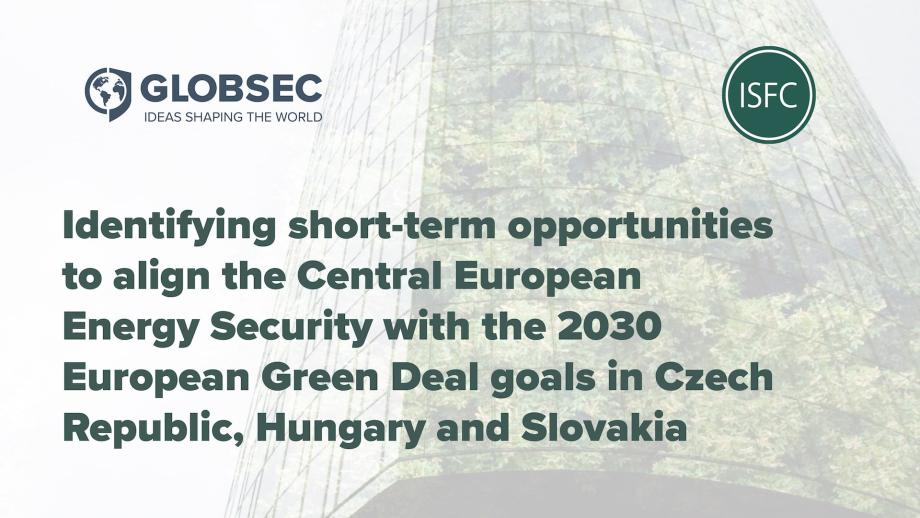Identifying short-term opportunities to align the Central European Energy Security with the 2030 European Green Deal goals in Czech Republic, Hungary and Slovakia

The Russian invasion in Ukraine provided extra impetus to reach climate and energy goals in Europe. Given Central Europe’s strong dependency on Russian energy sources, the question is to what extent the REPowerEU plan, European Green Deal and energy security are and can be aligned.
Using consistent preCovid19 data this paper explores the short-term opportunities to align Central European energy security with its 2030 climate and energy goals. For its total available energy, the EU imports 61 % and generates 39 % itself. Approximately one third of the imported energy (thus 20 % of its total) is imported from Russia.
In chapter 1 it is discussed that Czech Republic, Slovakia and Hungary have a far above EU average high energy dependency on Russian coal, gas, oil and petroleum products as well as uranium. Chapter 2 reveals the most important European Green Deal legislation, the 2030 55 % CO2-reduction target and how far Czech Republic (72 %), Hungary (65 %) and Slovakia (53 %) are already reaching those targets.
Chapter 3, 4 and 5 are dedicated sector specific attention areas, namely energy, buildings and transport. On energy, phasing out coal would reduce Czech Republic’s CO2-emissions by 21 %, in Hungary by 5 % and Slovakia 4 %. At the same, especially Czech Republic would be faced with an energy gap to fill one way or the other.